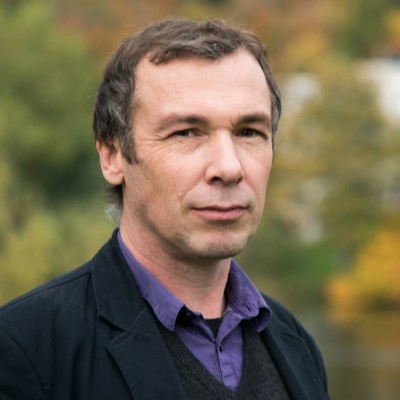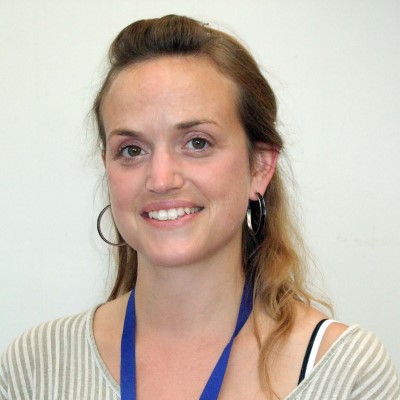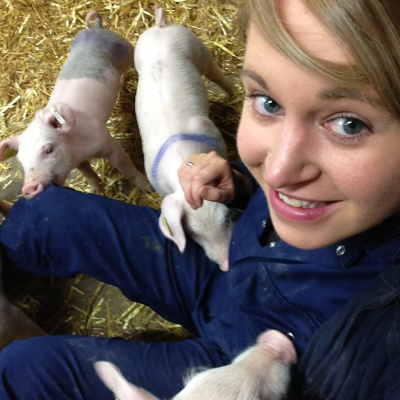CIEL | Meet the Scientist
Dr Graham McAuliffe
Postdoctoral Research Scientist in Sustainability Assessment | Specialist in life cycle assessment of agricultural products 
What project/s are you currently working on?
- Agrifood systems life cycle analysis (LCA) This research looks at how management can reduce environmental impacts in animal-based food systems. At the moment we are developing realistic simulations of farming systems to help deliver net zero carbon by 2050. For example, one approach is the potential of woodland on farms – either forestry or silvo-pastoral systems (animals grazing under trees). Increasing woodland decreases a farm’s carbon footprint, but it has economic and food security effects which must be modelled to.
- Accounting for human nutrition in sustainability assessments Basing LCA on weight of product produced fails to account for differences in nutritional “adequacy” within that weight. The function of our agrifood system is to provide human sustenance, and so this research stream focuses on accounting for product quality (i.e. nutritional content and availability) to fairly conduct sustainability analyses of edible products by simultaneously assessing (a) the environmental impact of a supply-chain and (b) considering how much of a product would need to be consumed to achieve recommended daily nutrient intakes.
- Spatial LCA for optimised land use A recent and novel adventure has been scaling out sustainability assessments to a wider geographic area. We are working within a single county in England but have a long-term goal of rolling this out for whole of the UK. This will allow us to identify where the most sustainable food systems should be located. Our landmass has a finite size but our nutritional needs are increasing with population size. We have a pressing need to identify how to use our land optimally.
What capability are you drawing on to deliver the research?
As an LCA expert, I need to have a familiarity with most fields of science (as the saying goes, this means I am “master of none”). Fortunately, I have access to many experts at Rothamsted Research. An LCA practitioner has to think of products and services as systems (i.e. complex supply-chains) and so quantify environmental impacts at all stages in a given product or service supply-chain. Being able to visualise and quantify material flows to and from nature at different production phases is essential. You also need to be proficient at data manipulation and analysis. As an early career scientist, I spend a considerable amount of my time upskilling in tools to do this. Lastly, perhaps the most important capability is writing well. We need to write in a style that is technically accurate, yet interesting to grab a reader’s attention.
What would be your ideal research project, assuming no barriers!
One of the biggest barriers to LCA’s potential is lack of data and quality of data. In an ideal research project, our team would have direct access to data from any global agri-food supply chain without “commercial sensitivity” barriers. If this restriction was removed, we could quantify the true environmental impact of individual supply-chains rather than relying on average data metrics. This would be incredibly exciting, but the sheer volume of data would need a large, dedicated team many years to analyse and transform into a useful resource. Doing this would enable policymakers to tailor local strategies to maximise food outputs whilst minimising impacts on the environment.
How did you arrive at doing what you do now?
I think my pathway was a gradual one. In my undergraduate Geography programme, I was introduced to the concept of systems-thinking. I found it fascinating learning that e.g. a ketchup bottle (content and packaging) is made up of materials sourced from dozens of countries, being moved elsewhere and so on until the product finally ends up with the consumer. This led to my MSc thesis on the environmental impacts of commercial pig production in Ireland using LCA.
I then went to Rothamsted Research’s North Wyke Farm Platform in Devon to expand my knowledge and skill with a PhD about reducing uncertainty in life cycle assessment of livestock production systems, using North Wyke Farm Platform data. Thanks to a great line management team and fantastic scientific capabilities at Rothamsted Research, my passion for improving agrifood supply chain sustainability grows every year!
You were a lead author in the report commissioned by CIEL in 2020: Net Zero Carbon & UK Livestock. Were there any data/conclusions from the report you were not expecting or would like to explore further in the future?
I have become deeply interested in the concept of Marginal Abatement Cost curves. It is one thing to identify an environmentally efficient production method, but if not economically viable, it is no more sustainable than a highly polluting enterprise producing vast quantities of food. On a broader level, the most rewarding outcome was to obtain unanimous agreement amongst our group of livestock and environmental scientists that urgent work is needed to maximise agriculture’s role in contributing to a net zero carbon economy. Although the report’s conclusions are stark, the sheer fact that they are on paper, endorsed by 14 leading agricultural and environmental institutes, demonstrates (a) the seriousness of the climate challenge, and the importance (b) of multidisciplinary scientists working together to address this challenge in the next 30 years and beyond.
Find out more about our Founding Research Member, Rothamsted Research







